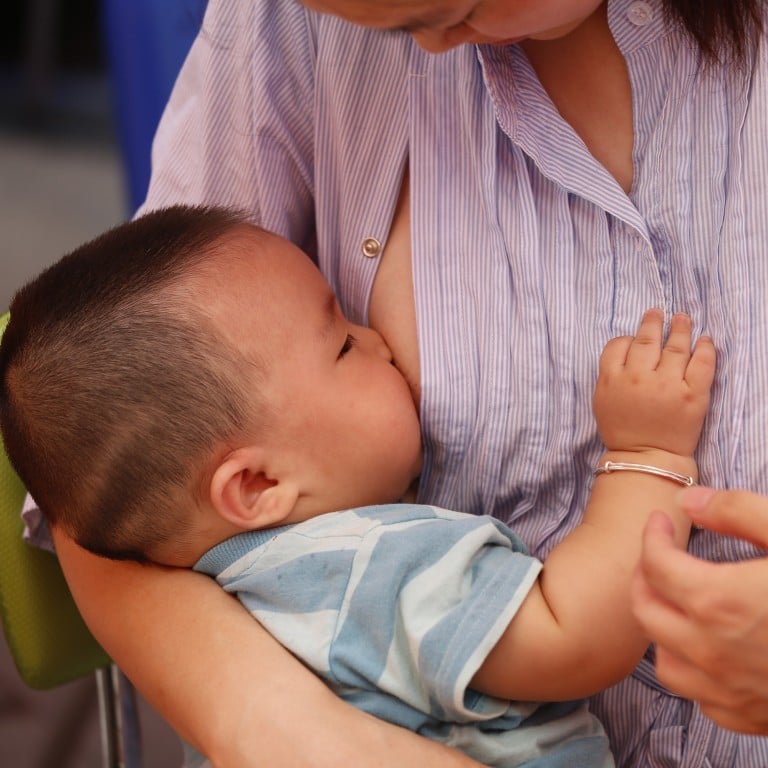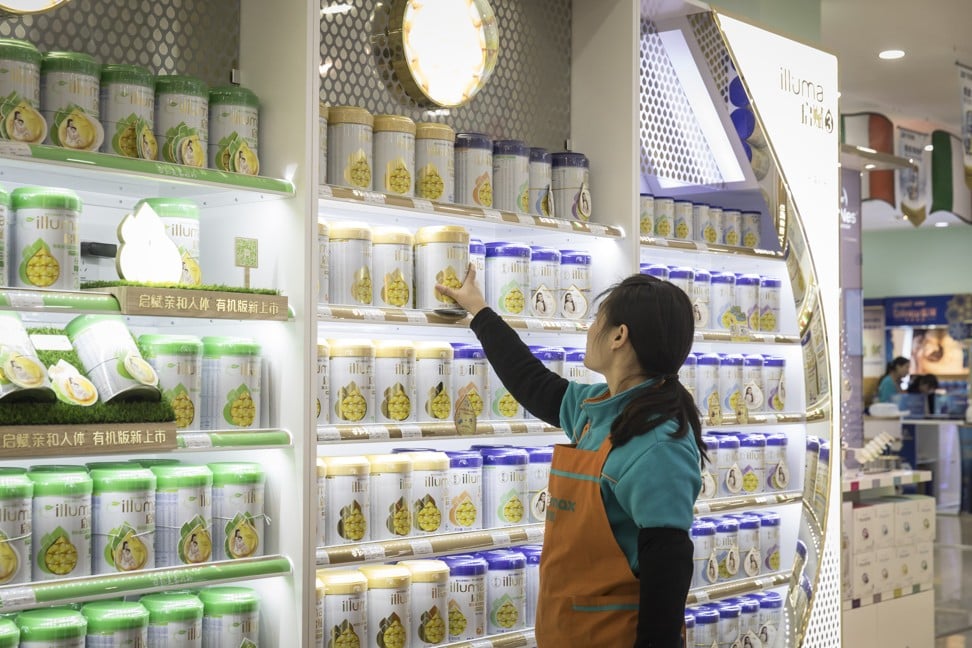
Why do Chinese mothers breastfeed less than the world? Blame formula milk ads
- Only 30 per cent of Chinese babies are fed only breast milk, survey finds
- Group behind the study blames advertising for China trailing the global average and its own target of 50 per cent by 2020
Breastfeeding remains unpopular in China, driven partly by the success of milk formula advertising, said a public research institute as it called for the adverts to be banned.
The World Health Organisation advocates all babies under six months old drink solely breast milk, but in mainland China only 29 per cent of that group are breastfed, according to a study by the China Development Research Foundation, news site Thepaper.cn reported. The figure is well below the global average of 43 per cent.
“China’s population is one-fifth of the world’s total and the newborns proportion is far less [than that]. However, China accounts for one-third of global milk powder sales,” Fang Jin, deputy secretary general of the foundation, said at a press conference on Monday.
“The advertisement of milk powders is too successful.”
China’s parents still mistrust country’s brands 10 years after lethal milk powder scandal
The Beijing-based foundation polled 10,223 mothers whose children were under a year old, in 12 areas of the country, including cities and rural areas, Thepaper reported.
In big cities, 36 per cent were fed only with breast milk, while in small and medium cities the figure was 23 per cent and in the countryside it was 28 per cent.
Breast milk substitutes were advertised to mothers and family members through a wide variety of channels, the foundation found. This, it argued, increased the probability of mothers using milk powder to feed their babies by 31 percentage points, although it was not clear how the foundation derived this number.
This has left China a long way from hitting its target of 50 per cent of babies under six months being breastfed by 2020, according to Fang, who urged the authorities to legislate to regulate the milk formula market to reduce its possible effect on breastfeeding.
Suspects in China’s ‘biggest baby milk scandal in decade’ go on trial
The government should ban advertisements that claim milk formula or other products can replace breast milk, he told Thepaper.
Other influences on mothers deciding whether to breastfeed included low awareness and short maternity leave, Fang said.
Wang Zhixu, a professor from Nanjing Medical University, told news portal sohu.com last year that, faced with ad campaigns for milk formula, many mothers “surrendered”.
“They were under the impression that it’s not bad to feed babies with milk powders, or that it’s even more nutritious,” Wang was quoted saying. “It’s really a wrong perception.”
Sanlu lobbied officials to cover up milk scandal
One mother in Shanghai, May Zhang, 33, said her two-month-old daughter drank her breast milk in the daytime and formula in the evening. She said she had heard the WHO’s advice but felt unable to feed her child entirely with breast milk.
“I can’t provide her enough milk,” Zhang said. “Anyway, it’s not bad to have the formula.”
Nearly 90 per cent of new mothers who took part in the survey said they were given less than six months of maternity leave. Mothers are guaranteed 98 days’ maternity leave under Chinese law.
A third of the working mothers surveyed said they were not given the hour a day of breastfeeding breaks required by law. Less than 20 per cent of their workplaces had breastfeeding rooms.
Hong Kong’s limit on baby milk formula to stay as fears grow demand from mainland China could cause repeat of shortage
Mainland mothers have increasingly bought foreign milk powder since a scandal a decade ago in which domestic brands including Sanlu were found to have tainted their products with melamine, an industrial material, to boost their protein content.
Six babies on the mainland died and about 300,000 were diagnosed with kidney problems after being fed with the contaminated milk powder.
Zhang said she fed her daughter two brands of formula, one from Germany and the other from New Zealand.


